US Denies Visas to Iran’s Archery Team To Partake In World Games
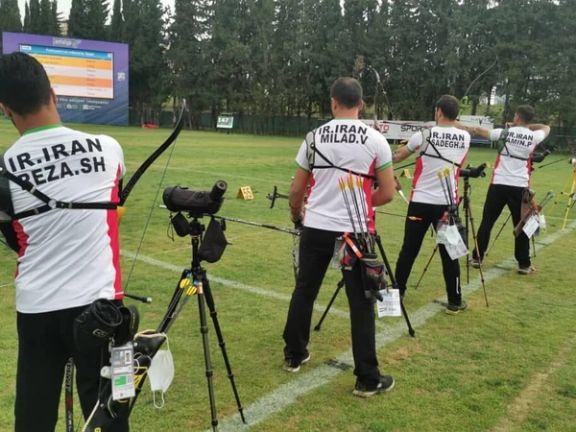
Iran’s Archery Federation announced on Saturday that the United States did not issue visas for the national team members, and they lost the chance to participate in the World Games.

Iran’s Archery Federation announced on Saturday that the United States did not issue visas for the national team members, and they lost the chance to participate in the World Games.
The 2022 World Games, an international multi-sport event meant for disciplines or categories that were not contested in the Olympic Games, was inaugurated in Birmingham, Alabama, on July 7.
The president of the Iranian federation, Gholamreza Shabanibahar, said Iran plans to voice its official protest to the World Archery Federation in the coming days.
Last week, the Iranian karate team was also denied visas to enter the US for the World Games. Fox News claimed that the national team has direct links to the Revolutionary Guard (IRGC) that is designated as a terrorist organization by Washington. The report said opponents of the regime and Gold Star families – a name given to immediate family members of the killed US service members -- called for an immediate ban.
Beverly Wolfer, sister of Major Stuart Adam Wolfer, who was killed in Iraq on April 6, 2008 by an Iranian-backed terror cell, said, “Allowing Iranian sports teams to compete in the US legitimizes a terrorist regime by flying its flag and playing its anthem on American soil.”
The captain of the karate team, Zabihollah Poursheib, told ISNA, "America did not issue visas for various teams, including wrestling, which shows that the Americans mix non-sports and political issues with sports."
The Islamic Republic, especially since Ebrahim Raisi took office, has appointed several former IRGC officers as top managers of government organizations such as sports federations.
In May, Canada Soccer cancelled a controversial friendly match with Iran’s national team after many Iranians objected to the visit of Iranian football officials.
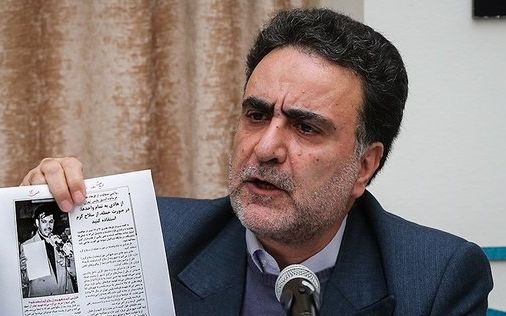
Iran’s security forces have arrested a leading ‘reformist’ politician, Mostafa Tajzadeh on Friday and two prominent film directors critical of the regime.
In short reports, websites affiliated with the Revolutionary Guard said Tajzadeh was arrested on charges of “assembly and collusion against state security,” an accusation routinely used to jail all opponents and even those who are considered generally loyal to the principle of having an Islamic Republic.
Tajzadeh was deputy-interior minister during the presidency of reformist Mohammad Khatami in 2000s and had become an outspoken critic of policies pursued by dominating hardliners in Iran in recent years. He spent seven years in prison after months of nationwide protests to the results of 2009 presidential elections reinstating Mahmoud Ahmadinejad in a second term.
But in the past three years, Tajzadeh became increasingly vocal against the hardliners and even Supreme Leader Ali Khamenei. From his public comments it was apparent that he remained loyal to the concept of an Islamic Republic but otherwise criticized almost every aspect of the political system Khamenei has nurtured.
In recent days, Tajzadeh vehemently opposed the increasingly harsh methods to enforce hijab in his tweets. In March he opposed the government's policy of not condemning Russia’s invasion of Ukraine.
"Iranians still remember the bitter experience of Saddam Hussain's war (1980s) and his aggression against Iran, a neighboring country. For this, Iranians condemn the military attack" on Ukraine, he tweeted in March.
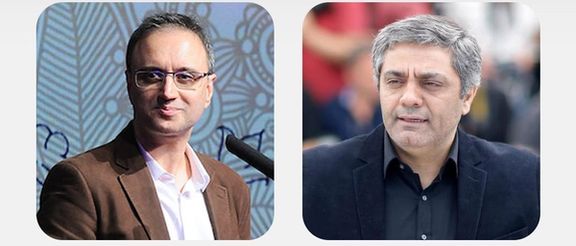
Late Friday, the government’s official news website IRNA announced that two film directors, Mohammad Rasoulof and Mostafa Alehahmad have also been arrested. They were signatories of a collective statement titles “Lay down the gun” issued by more than 100 film industry personalities in the end of May calling on military and security forces who “have become tools for cracking down on the people,” not to suppress protesters who simply want their basic rights.
Dozens of Rasoulof’s films have won international awards and he is known as an independent filmmaker, who spent one year in prison for filming without a permit from the censors of Iran’s clerical regime.
After the public statement by filmmakers, Rasoulof wrote on his Instagram page that security forces were calling signatories asking them to renounce their signatures or give interviews to state media discrediting the statement.
Some Iranian activists tweeted on Friday and Saturday that Tajzadeh’s arrest puts an end to any notion that even loyal reformists would be allowed to exist in Iran.
Mehdi Nasiri, a regime insider who was once the editor of the conservative flagship, Kayhan Daily tweeted, “Mostafa Tajzadeh’s arrest…who was still defending reforms and opposing political violence for regime change, only means that the rulers are not able to discern their own interests, or those of the people and Iran.”

An Israeli intelligence official told Iran International that the IRGC routinely uses criminal gangs for terrorist operations in other countries such as Turkey.
“The IRGC has for many years employed criminal gangs and mafia [like groups] in various countries including Turkey for terrorist operations,” an Israeli intelligence official told Iran International’s correspondent in Tel Aviv regarding Turkish media’s recent allegations that the Iran’s Guards had employed organized criminals for foiled attacks on Israeli tourists last month.
The official who did not want to be named alleged that the IRGC’s extra-territorial arm, the Qods (Quds) Force and the its Intelligence Organization (SAS) have used criminal gangs, drug traffickers, and even ordinary criminals for such operations in Turkey, South America, and Cyprus.
Turkey’s intelligence organization (MIT) and Israel’s Mossad last month said they had foiled alleged Iran-hatched plots to abduct and assassinate Israeli tourists in Turkey.
On June 23, just before the arrival of then-Israeli Foreign Minister Yair Lapid to Turkey, MIT revealed that it had detained eight suspects, allegedly working for an Iranian intelligence cell, who were involved in the plot.
The suspects who were arrested in raids on three separate houses in Istanbul said that they were not in direct contact with Iranian intelligence and took their orders from the leader of an Iranian organized crime group who was in Iran, through WhatsApp, Turkish media reported.
Turkey’s Yeni Şafak has reported that the cell was plotting two different operations, one to abduct former Israeli diplomat Yossi Levi-Sfari and his partner, and another against three Israeli women who resided in an Istanbul hotel.
According to Turkish media, three of the six Iranian suspects, have said in their interrogations that the terrorist operations were ordered by Iranian intelligence. One of the Iranian suspects who had the actual assassin’s role traveled to Iran four times in two months and met with a criminal group’s leader in Iran four days before his arrest.
The Iranian members of the of the terrorist cell had entered Turkey legally two months earlier but two of them had used forged passports, Turkish media say.
The Israeli intelligence official cited Mansour Rasouli, an Iranian national reportedly abducted and interrogated inside Iran by Israeli Mossad, as an example.
On April 30, Israeli media released an audio recording with the photo of a man introduced as Iranian national Mansour Rasouli, 52, who they claimed the Mossad had interrogated inside Iran. Israeli media did not provide a source for the audio file that they said Mossad operatives posing as Iranian secret service agents recorded at Rasouli's home in Iran.
In the audio file Rasouli admitted that that he had been instructed by the IRGC to establish an operational network to assassinate an Israeli diplomat in Istanbul, a Germany-based US general, and a journalist in France. Officials in Tehran never commented on Israeli media’s claims but Rasouli himself later released a video online in which he said he had been coerced by the Mossadto confess to terror plots.
In past few months there were multiple mysterious incidents in which IRGC officers and operatives were killed or died in unexplained circumstances. Iran blamed Israel for some of the incidents. Israel has not taken responsibility for the assassinations but has not denied involvement, either.
The IRGC’s counter-intelligence chief Hossein Taeb was replaced last month. Taeb was recently harshly criticized by social media activists and some politicians for failing to detect and prevent Israel's operations in Iran.

An Iranian-born senior official of the German domestic intelligence agency has recently made a personal visit to Iran following the death of her father.
German-language news magazine Focus reported on Friday that Felor Badenberg, the vice president of the Federal Office for the Protection of the Constitution (BfV) violated the strict security precautions of her own agency by making the private trip to the Islamic Republic, as many European countries as well as the United States are struggling to secure the release of their citizens held in Iran.
Badenberg, who was only promoted to the top of federal intelligence agency on June 22 by Interior Minister Nancy Faeser, flew to the Iranian capital months ago to settle inheritance matters after the death of her father. She had been previously the head of the Right-Wing Extremism and Terrorism Department of the BfV since June 2020.
All BfV employees are strictly prohibited from traveling to or staying in countries such as Iran, Syria or Russia as they are at risk of arbitrary detention, mainly over espionage. The BfV president and the minister were apparently aware of her trip but they declined to answer if they approved Badenberg's flight to Tehran.
Security circles assume that the 46-year-old was under meticulous surveillance by the Iranian secret service after she landed in Iran, with a senior government official saying that Iranian counterintelligence has certainly recorded very precisely who she met and where, meaning that Badenberg's contacts and family in Tehran are now in peril. The risk of possible blackmail is too high, the report suggested.
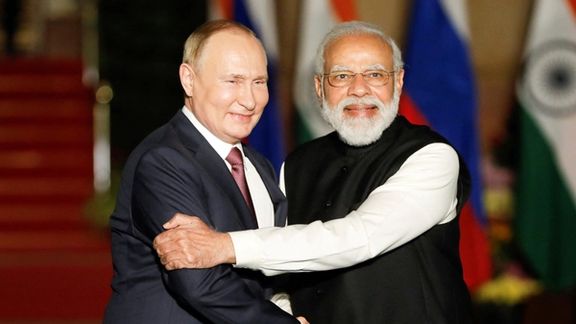
China’s growing imports of Iranian oil is one reason why India has not followed Western sanctions on Russian crude, more than tripling imports in recent months.
An analysis published by Reuters on Friday quotes Indian officials who said, “New Delhi wants to avoid repeating what it sees as the mistakes of the past: abiding by sanctions on Iran and winding down oil imports, only to see its main regional rival China continue unpunished and benefit economically.”
The result has been a huge leap in volumes from Russia. In May, India imported 819,000 barrels per day (bpd), from 277,000 bpd in April and 33,000 bpd a year ago. Russia is now the second biggest supplier to India, replacing Saudi Arabia, while Iraq continues to be the largest.
India abided by US sanctions when former US president Donald Trump withdrew from the 2015 nuclear agreement known as JCPOA and gradually imposed full oil export sanctions on Iran. But China continued buying small volumes until November 2020 when it began noticeably increasing imports of illicit Iranian shipments.
China has kept up larger Iranian oil imports and is now buying massive amounts of Russian oil at discount prices. According to various estimates Tehran is exporting around 750,000 barrels per day and China is by far the largest buyer.
The Biden Administration, which decided early on to start talks with Tehran to revive the JCPOA, has failed to put effective pressure on China to stop imports of Iranian crude, which also come with a discount.
This has convinced India not to join Western sanctions against Russia, seeing itself shortchanged by abiding with US sanctions on Iran, while its rival is getting cheap oil.
"India has the attitude that if China is buying, why wouldn't we?" Robin Mills, chief executive of energy consultancy Qamar Energy told Reuters.
"India doesn't want to be in the same position again when China continued to buy Iranian oil and India stopped it."
Last month, Indian Foreign Minister Subrahmanyam Jaishankar posed the question at a conference: "Why are Indian money and funds coming from India seen as funding the war (in Ukraine), when Europe also buys gas from Russia?"
Referring to US sanctions on Iranian and Venezuelan crude, he said: "They (Europe and the US) have squeezed every other source of oil we have and then say you will not go to the market and get the best deal for the people; it's not a fair approach".
That all means New Delhi is reluctant to put US interests ahead of those of Russia, especially after it felt it was harmed economically by sanctions on oil from Iran and Venezuela.
Under Modi's nationalist government, India has pursued an assertive foreign policy, standing up to China in a two-year military border standoff and rejecting Western criticism of domestic policies some say are authoritarian and divisive.
Indian officials counter that what refiners are doing is legal and some European countries are still buying Russian oil and gas. Executives at state-owned and private refineries do not expect purchases of Russian crude to slow any time soon, the report said.
The United States has offered to sell more defense equipment and oil to India, for example, and New Delhi joined a U.S.-led trade partnership Indo-Pacific Economic Framework for Prosperity.
India is a member of the Quad alliance, which links it with the United States, Japan and Australia. India also signed a free trade agreement with Australia, talks for which initially began in 2011.
With reporting by Reuters
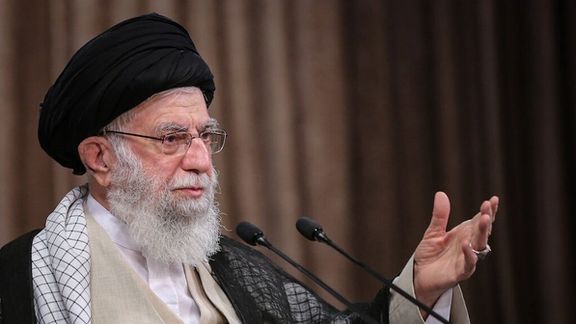
In a message to world's Muslims, Ali Khamenei the ruler of the Islamic Republic of Iran has called for "unity and spirituality" while attacking Western values.
Khamenei’s Shiite followers call him the leader of the Muslim world, but his appeal reaches a tiny minority of Muslims who are overwhelmingly Sunni. He is known among many Sunnis as a man who has been sowing division among Muslims through his actions in Syria, Iraq, Yemen and elsewhere.
Meanwhile, his critics say that the extent of despotism and financial corruption in the system under his leadership leaves no room for spirituality.
Khamenei also repeated his favorite theory that the West tithers on the verge of defeat and collapse, at a time when the United States and Europe have shown strong unity to confront Russian aggression in Ukraine and NATO has just accepted Sweden and Finland as new members.
He said in his message on the occasion of the annual Hajj pilgrimage: "The Islamic nation can once again observe its unity and harmony in this clear, timeless mirror, and take this opportunity to turn away from factors that lead to disunity and division." The statement is in total contradiction to Khamenei’s and his government's behavior as they have not been able to maintain friendly ties with Muslim nations around Iran, including Saudi Arabia where millions of Muslims from other countries gather for the pilgrimage.
Nonetheless, Khamenei accused "the enemies of Muslim nations" of "weakening the two bolstering elixirs of Islamic unity and spirituality among our nations."
"The enemies of Islam strive to weaken spirituality by promoting a western lifestyle that is devoid of spirituality and which is rooted in a short-sighted, materialistic vision of the world," Khamenei reiterated. "on the other hand," he stressed "everyone must work to overcome the factors that foster division and disunity."
Khamenei in his message emphasized the role of ideas such as "Islamic awakening, resistance," and what he called "the political governance in the Islamic Republic of Iran," as the elements of unity in the Muslim world. This comes while his idea of resistance has so far been nothing more than reckless anti-Americanism and opposition to the coexistence of regional nations with Israel.
He further charged that " the Arrogant Powers, and the United States are worried about such a trend in the Islamic world and employ all their resources in order to confront it. The tactics they employ range from dominating the media and soft warfare, to warmongering and starting proxy wars, political espionage, and acts of inducement, and threatening, bribing and other forms of enticement." He added that "the United States is using Israel as a tool for this all-out effort." Khamenei simply ignored Israel's alliance with most of the region's Muslim nations to prevent the Islamic Republic's atrocities.
Meanwhile, on the same day that Khamenei's message was sent out, his senior adviser for international affairs, Former Foreign Minister Ali Akbar Velayati whose Cold War era ideas is believed to have some influence on Khamenei, said "Iran cannot tolerate NATO's presence at its borders," mindless of the fact, that Turkey, a NATO member state for more than 70 years is a neighbor of Iran.
Velayati also echoed Khamenei's belief that the United States and Europe have been in decline during recent years, without providing any proof for the claim.